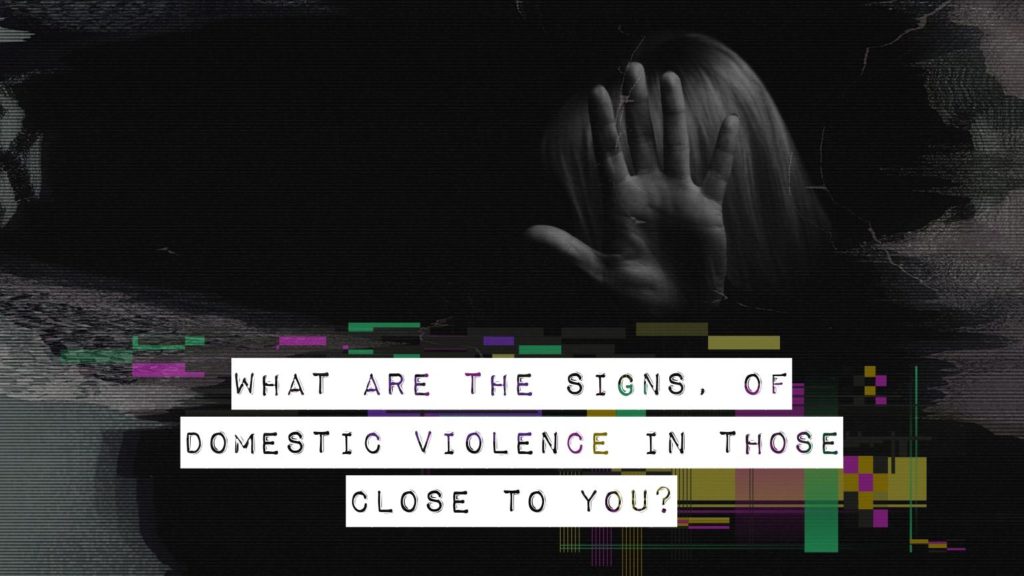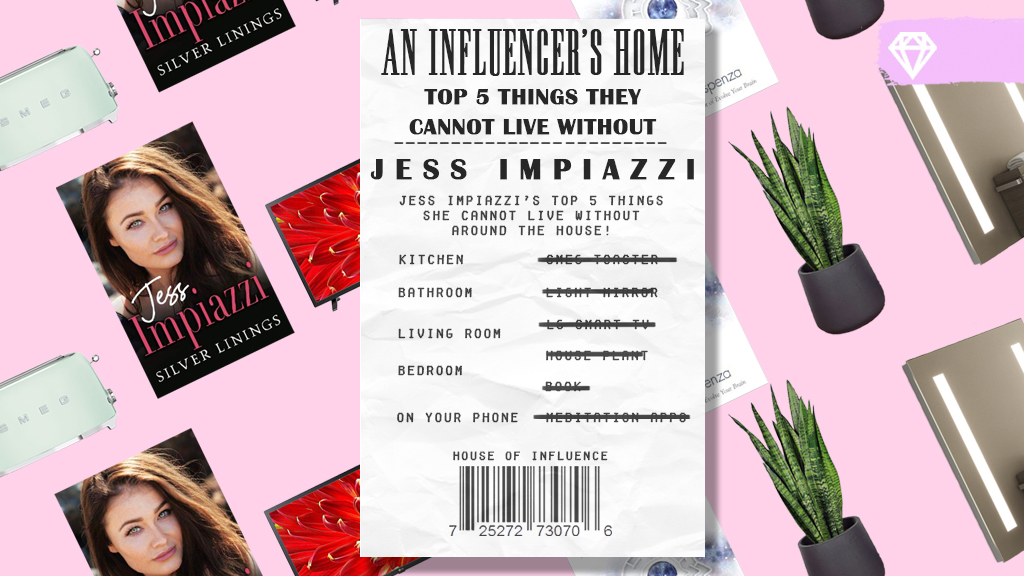
Domestic violence is usually a private war. The person being abused either feels they are in love - or actually are in love - with their perpetrator. Things to look for are obvious bruising, unknown cuts or stiffness because sometimes the abuser will target the torso.
Other signs include days of absence from work or events that you’re expecting them to go to but they don’t attend for some reason.
Some abusers are outright violent, and they will hit and do whatever. It’s very rare to have somebody punch and bruise faces, etc. Usually a serial perpetrator/abuser will usually find more covert, more hidden ways of hurting and taking out their anger on their partner. Signs might include stiffness or more visits to the doctor.
Another sign would be if a person is overly cheerful and doesn’t discuss their relationship that much or it’s all like a perfect ‘dolls house’ scenario because they’re hiding it. They’re protecting the perpetrator. You might think that’s strange, but they’re protecting the relationship because they are in hope of the relationship changing. They’re in hope of this person they love loving them. Especially if children are involved, they are just praying that the father or mother - it can be either - will heal and get better.
Unfortunately, most don’t because they don’t have access to effective training courses on anger or the objectification of a lover for the purposes of venting anger. The most important thing is that they have to want to change. And if they learnt this behaviour through their own development, it’s very difficult for people to recognise the need to change.


How can you seek help for domestic violence?
Domestic violence is an umbrella term for torture and for being hurt. It can be emotional, financial, physical, sexual. Different types of abuse really need different types of holding or care or advice.
The mainstream helplines are very good. If it’s serious domestic violence then your duty social care worker is the best person to get in touch with. And you might be shocked, with everything that’s going on with the police right now, but all police departments in the UK have zero tolerance of domestic violence. It’s a double-edged sword unfortunately. If you contact the police and explain to them that you’re a victim of domestic violence, they will pass you through to the domestic violence team who are wonderful people. They are thoughtful, caring and highly trained. But if you are being abused then the one thing with that channel is that they will take action because there is zero tolerance so they will make an arrest if abuse is seen to be going on. Sometimes that scares people because once you do that, you’re ‘on the register’ so to speak.
If you’re at the beginning of exploring this and you’re not sure what to do, the Samaritans are very good at listening to what’s going on but they’re non-active. They will not intervene. But it can be a good step for somebody to take to start talking. But wherever you are in the world, there will be free charitable organisations you can call. And they will call you back if you don’t have credit. You can call them and give them your number and they will call you back. Or there are online chat rooms for domestic violence.
Be very careful about your browsing history and the numbers on your mobile phone. Perpetrators don’t leave any stone unturned when they want to catch you and put all of their badness on to you. Don’t forget, a perpetrator is usually thinking that you’re the bad one and everything that they are they keep on projecting on to you. So, they will investigate your phone. They will be detectives. They will make sure they have control over you and that you’re keeping everything that they’re doing to you private.
Reach out but be careful of friends. Reach out only to a friend that you know will listen to you but will not act. Friends can sometimes want to fix things or start talking and suddenly everyone knows and you don’t have control. So, find a professional.


What ways are there to get out safely from domestic violence?
A lot of people in violent relationships kill themselves. Don’t forget domestic violence also includes parental domestic violence and child to parent violence. It is any violence within a personal intimate or familial relationship.
I’m interviewed a lot, all over the world, about this and I always emphasise safety. Don’t think about what’s for dinner while the kitchen is on fire.
If you are in imminent danger, go somewhere safe. Get you and your loved ones away from the perpetrator. If you’re reading this, get out immediately if it’s that bad. Don’t worry about belongings. There are people that will take care of you.
If it’s not that imminent and you’re trying to work out a way to leave then take steps. Start thinking about what you would say to a friend who was going through what you’re going through. That’s always a good reflective tool. What would you say to somebody you care for?
You can also read my book Learning How To Leave (Power of You series). Go to MPAmind.com. That’s all about leaving. Have a good read but hide it! Or take the cover off if you have to. Don’t leave it lying about.
There are lots of options, even if you may feel that there are none because you have been sucked dry and almost killed.

Domestic violence is the biggest reason for suicide. If you are feeling suicidal, reach out for appropriate help in your area. There are telephone numbers and support lines. There is hope but you need somebody to show you that sometimes. Read my book for hope and understanding.








